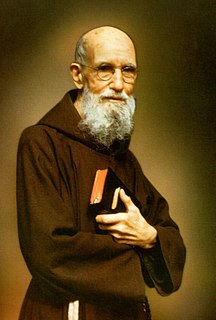A Quote by Neil deGrasse Tyson
I [do not know] when the end of science will come. ... What I do know is that our species is dumber than we normally admit to ourselves. This limit of our mental faculties, and not necessarily of science itself, ensures to me that we have only just begun to figure out the universe.
Related Quotes
I have begun to feel that there is a tendency in 20th Century science to forget that there will be a 21st Century science, and indeed a 30th Century science, from which vantage points our knowledge of the universe may appear quite different than it does to us. We suffer, perhaps, from temporal provincialism, a form of arrogance that has always irritated posterity.
Our greatest theoretical physicist, Stephen Hawking, recently declared that humans have no more than a hundred years to get off this planet to ensure the survival of our species. And when someone such as he does so, it is with an understanding not just of the science, but of both our tenuous place and our possibility in the universe.
"The Universe repeats itself, with the possible exception of history." Of all earthly studies history is the only one that does not repeat itself. ... Astronomy repeats itself; botany repeats itself; trigonometry repeats itself; mechanics repeats itself; compound long division repeats itself. Every sum if worked out in the same way at any time will bring out the same answer. ... A great many moderns say that history is a science; if so it occupies a solitary and splendid elevation among the sciences; it is the only science the conclusions of which are always wrong.
I do not know of any divine commands. I do know of most important human ones. I do not know the needs of a god or of another world. . . . I do know that women make shirts for seventy cents a dozen in this one. I do know that the needs of humanity and this world are infinite unending constant and immediate. They will take all our time our strength our love and our thoughts; and our work here will be only then begun.
But in the end, science does not provide the answers most of us require. Its story of our origins and of our end is, to say the least, unsatisfactory. To the question, "How did it all begin?", science answers, "Probably by an accident." To the question, "How will it all end?", science answers, "Probably by an accident." And to many people, the accidental life is not worth living. Moreover, the science-god has no answer to the question, "Why are we here?" and, to the question, "What moral instructions do you give us?", the science-god maintains silence.
There are two questions that get to us all: Are we alone in the Universe? And, where did we come from? For me, science provides a much more satisfactory way to seek answers than does any religion I've come across. With that said, the universe is mysterious and wonderful. It fills me with reverence for nature and our place among the stars; our place in space.
Art and science coincide insofar as both aim to improve the lives of men and women. The latter normally concerns itself with profit, the former with pleasure. In the coming age, art will fashion our entertainment out of new means of productivity in ways that will simultaneously enhance our profit and maximize our pleasure.
It is a curious thing: man, the centre and creator of all science, is the only object which our science has not yet succeeded in including in a homogeneous representation of the universe. We know the history of his bones, but no ordered place has yet been found in nature for his reflective intelligence.
Perhaps in the back of our minds we already understand, without all the science I've discussed, that something terribly wrong is happening. Our sustenance now comes from misery. We know that if someone offers to show us a film on how our meat is produced, it will be a horror film. We perhaps know more than we care to admit, keeping it down in the dark places of our memory-- disavowed. When we eat factory-farmed meat we live, literally, on tortured flesh. Increasingly, that tortured flesh is becoming our own.
A purely mental life may be destructive if it leads us to substitute thought for life and ideas for actions. The activity proper to man is purely mental because man is not just a disembodied mind. Our destiny is to live out what we think, because unless we live what we know, we do not even know it. It is only by making our knowledge part of ourselves, through action, that we enter into the reality that is signified by our concepts.




































